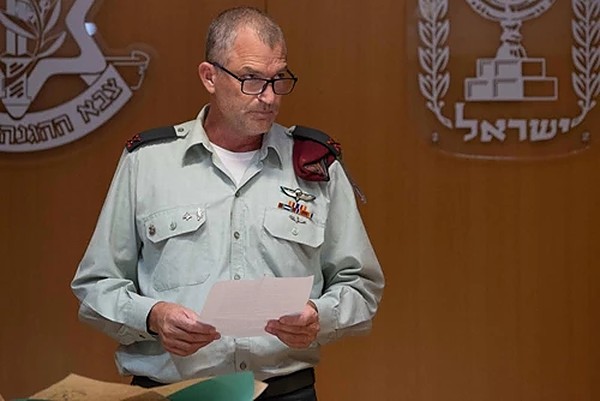“But we do worry about what will happen in the future,” Brigadier-General Benny Ben-Ari, commander of the Reserve Forces Corps, warned in a media interview.
By World Israel News Staff
The commander of the IDF Reserves Corps told a Hebrew-language news site that media reports claiming that a significant number of reservists are refusing to report for duty in protest of judicial reforms are exaggerated. More important, Israel’s security is not in danger, he stressed – at least not for the time being.
In an interview with Makor Rishon, a Hebrew-language newspaper associated with Religious Zionism, Brigadier-General Benny Ben-Ari said that the commanders been communicating with its soldiers in light of such reports along with warnings that the military would be incapable of protecting the State of Israel should war break out.
“The phenomenon [of refusing to serve] is really not widespread,” he said.
“I’m not saying it doesn’t exist,” he conceded. “We don’t bury our heads in the sand. We do a lot and try to reach every soldier.
Nevertheless, “We are not in a situation where if war breaks out tomorrow morning we won’t know how or be able to carry out our plans.
“We know that there is a limited problem in the Air Force,” he acknowledged. “But in the other units, there is no significant damage, and certainly not in their competence.”
Brig. Gen. (res.) Ari Singer, former commander of the Israel Defense Forces reserves, told the Jewish News Syndicate in August that anti-reform protest leaders are conducting a “propaganda and influence operation” to topple the government and appear willing to sacrifice the army’s reputation to do it.
Last month, Prime Minister Benjamin Netanyahu postponed his vacation and summoned IDF Chief of Staff Lt. Gen. Herzi Halevi for an “urgent” meeting focusing on the military’s operational readiness.
Meanwhile, “the motivation to serve is increasing,” Ben-Ari said, noting that he and other military leaders have been working to strengthen the incentive of those serving. “We are strengthening cohesion…and holding conversations with each and every soldier, including protest activists and those who express extreme positions.
“What I am experiencing is that the hatred and division that characterize the debate in the civilian world are absent here. An activist in the ‘Kaplan Force’ [dubbed in reference to Kaplan Street in Tel Aviv, the center of anti-government protests] and a very right-wing person who demonstrated in Jerusalem, they sit together in a jeep on the same mission, and they have no problem talking and cooperating.”
There is a “big gap” between the reports and the reality,” he said, although “we do worry about what will happen in the future.”




